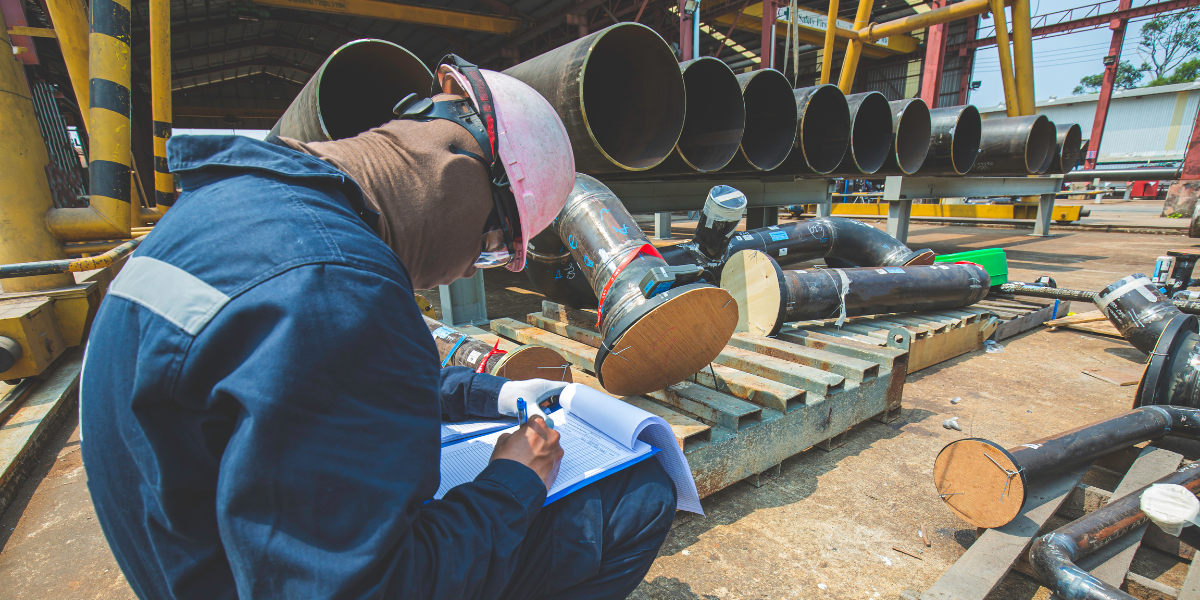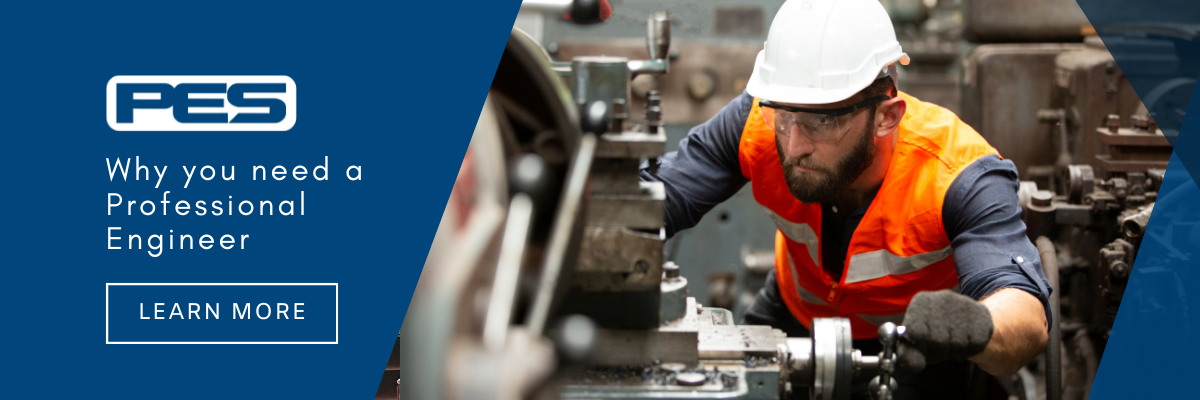3 min read
Equipment Certification Standards in the Oil and Gas Industry
PES Engineering
Jan 8, 2024

The oil and gas industry, known for its complex and high-risk operations, demands stringent adherence to various equipment certification standards. These certifications are not merely formalities; they are essential in ensuring the safety, reliability, and quality of equipment used in this critical sector.
Let's delve into some of the key certifications and understand how PES leverages them to uphold the highest standards in our engineering solutions.
- API Certification
- DNV Certification
- SEPCo Lifted Equipment Certification
- ATEX Certification
- CE Certification
API Certification
The American Petroleum Institute (API) certification is a revered standard in the oil and gas industry. It represents compliance with industry-established guidelines for product quality and safety. API certifications, like API Q1 and API 6A, are particularly crucial for quality management systems and specific equipment used in oil and gas operations. They assure that products are reliable, high-quality, and capable of withstanding the sector's demanding conditions.
API certification is not just a marker of quality; it’s a commitment to excellence. It involves rigorous testing and evaluation processes, ensuring that every piece of equipment can withstand the operational challenges it will face. For companies obtaining API certification for their products is a significant achievement, demonstrating a level of expertise and quality assurance that sets them apart in the industry.
DNV Certification
Det Norske Veritas (DNV) certification plays a pivotal role in the global oil and gas industry. It sets international benchmarks for equipment safety and reliability. DNV’s rigorous assessment process ensures that equipment adheres to the highest standards of safety, quality, and environmental care. This certification is particularly vital for international operations, where consistency in quality standards is crucial.
DNV certification involves a comprehensive review process that looks at every aspect of equipment design and functionality. This holistic approach ensures that certified products are not only safe and reliable but also meet international environmental standards.
SEPCo Lifted Equipment Certification
The Shell Exploration and Production Company (SEPCo) Lifted Equipment Certification is specific to lifting operations within the oil and gas sector. This certification ensures that all lifting equipment and operations meet stringent safety and operational standards. It is crucial for preventing accidents and ensuring the safe and efficient movement of heavy equipment and materials in various operational settings.
The SEPCo certification underscores the importance of specialized standards in high-risk operations like lifting. It requires a deep understanding of the operational environment and potential risks involved.
ATEX Certification
ATEX certification is vital for equipment used in potentially explosive atmospheres. It ensures that equipment and protective systems are designed to prevent ignition and withstand explosions. This certification is crucial for maintaining safety in environments where flammable gases, vapors, or dusts may be present, making it indispensable for certain operations in the oil and gas industry.
ATEX certification requires a meticulous approach to design and manufacturing, ensuring that every component of the equipment can safely operate in explosive environments. Complying with ATEX standards means a company's products are trusted for use in some of the most challenging and hazardous conditions, showcasing their commitment to engineering solutions that prioritize safety and reliability.
CE Certification
The CE mark, recognized across the European Union, indicates compliance with EU safety, health, and environmental protection standards. It is a mandatory certification for equipment sold within the EU. The CE mark assures that the equipment meets EU safety requirements, which is crucial for companies operating in or exporting to European markets.
Obtaining the CE mark is a significant milestone for any company. It not only opens up European markets but also signals to customers worldwide that their equipment meets high safety and environmental standards.
Upholding Excellence: How PES Embodies Industry Certification Standards
At PES, these certifications form the backbone of their commitment to quality and safety. By rigorously adhering to these standards, PES ensures that their engineering solutions not only meet but exceed industry expectations. These certifications enable PES to deliver products and services that are safe, reliable, and of the highest quality, reinforcing their position as a trusted leader in the oil and gas industry.
In a sector where safety and efficiency are paramount, PES's dedication to upholding these certification standards is a testament to their commitment to excellence in all aspects of their engineering solutions.
About Practical Engineering Solutions
 Practical Engineering Solutions will always be dedicated to providing top-notch customer service to meet our industry demands.
Practical Engineering Solutions will always be dedicated to providing top-notch customer service to meet our industry demands.
We set ourselves apart with our consistency and timely turnarounds. We are always committed to being responsive to our clients, KEEPING OUR PROMISES, making delivery schedules, and standing by our designs!
From concept, design, and engineering, to project management and integrity services. We are your gateway to your journey's engineering endeavors. Including oil & gas, hemp & CBD, and food industries.
Providing services focusing in Facilities Engineering, Turn-Key Solutions, Hemp Facilities, Food Plant Engineering, Manufacturing, Engineering Services and Drafting & Design



